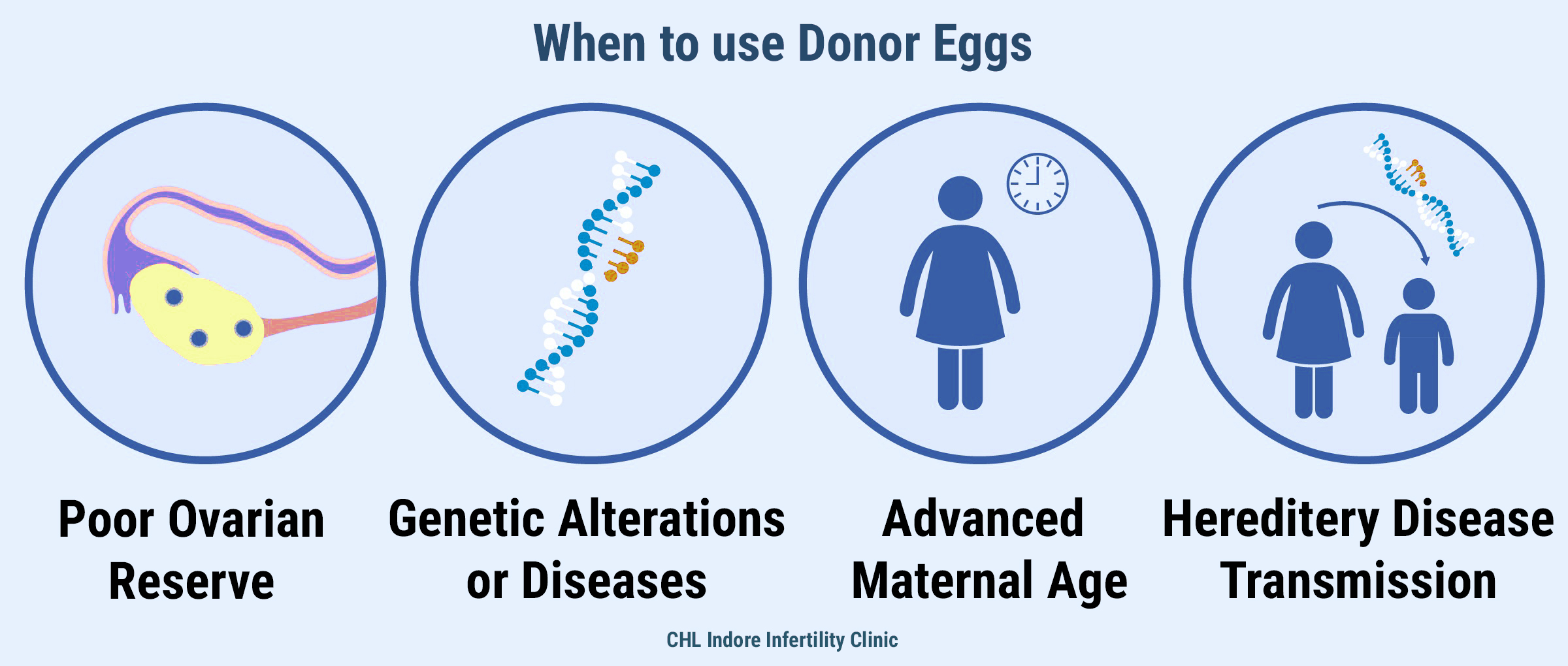Thinking about donating your eggs? It’s an incredibly generous act! However, it’s a significant decision with specific requirements you need to meet. This guide will help you understand the egg donation disqualifiers and determine if this path is right for you. We’ll cover various factors, from medical and genetic history to lifestyle choices and emotional well-being, providing context and clarity every step of the way.
Age and Ovarian Reserve
Age plays a significant role in egg donation due to the natural decline in egg quality and quantity as women get older. Most clinics prefer donors between 19 and 29, sometimes extending to the early thirties for those in excellent health. This isn’t arbitrary; younger eggs are generally more likely to result in successful pregnancies through IVF. Clinics often use tests like AMH (Anti-Mullerian Hormone) and AFC (Antral Follicle Count) to assess ovarian reserve—the number of available eggs. Lower levels may suggest reduced fertility and could be a disqualifying factor. [https://www.lolaapp.com/]
Age Restrictions in Detail
- Most clinics prefer donors aged 19-29, occasionally accepting slightly older donors up to the early 30s who meet all other criteria exceptionally well.
- The age range is crucial due to the decline in both egg quality and quantity as women age.
- Being under 18 is disqualifying due to legal and maturity reasons.
Medical, Genetic, and Family History
Your overall health, including your medical, genetic, and family history, is thoroughly reviewed during the screening process. Some conditions, like untreated STIs, are automatic disqualifiers due to the risk of transmission. Chronic illnesses (heart disease, certain cancers, autoimmune disorders) and reproductive issues (endometriosis, PCOS) require careful evaluation and may impact eligibility. Your family history is also important, as inherited genetic disorders are a consideration for the health of any potential child.
Specific Medical and Genetic Concerns
- Genetic Disorders: Conditions like cystic fibrosis or Huntington’s disease are likely disqualifying.
- Cancers: A history of certain cancers, especially ovarian or breast cancer, may be disqualifying.
- Reproductive Issues: Conditions like endometriosis and PCOS could influence eligibility.
- Chronic Illnesses: Heart disease, autoimmune disorders, and other chronic illnesses require careful assessment.
- Active Infections: Untreated STIs, HIV, and hepatitis are disqualifying factors.
Lifestyle and its Impact on Egg Health
Lifestyle choices significantly influence egg health. Smoking, recreational drug use, and excessive alcohol consumption can negatively affect egg quality and are often disqualifying. Even seemingly minor factors like extreme dieting or certain medications could impact eligibility. Clinics prefer donors with a healthy BMI (typically 18-29, though ranges vary) and a balanced diet, as a healthy body generally supports healthy eggs.
Lifestyle Factors in Detail
- Smoking: Significantly impairs egg quality and is a major disqualifying factor.
- Drug Use: Recreational drug use, including marijuana, can lead to disqualification.
- Excessive Alcohol: Regular heavy drinking can negatively impact egg quality.
- BMI: A healthy BMI is usually required, ideally between 18.5 and 24.9. Significant deviations may affect eligibility.
- Medications: Certain medications, including some antidepressants and anti-anxiety medications, might be disqualifying. Full disclosure of all medications and supplements is essential.
Emotional Well-being and Psychological Evaluation
Some clinics incorporate a psychological evaluation to gauge emotional preparedness for egg donation. This is not a judgment of mental health but an assessment of your ability to navigate the emotional complexities of the process. [https://www.lolaapp.com/]
Genetic Factors and Screening
Genetic screening is standard in egg donation to identify potential genetic disorders that could be passed on. A family history of a specific condition doesn’t automatically disqualify you, but it warrants further investigation with a genetic counselor to understand potential risks. [https://www.lolaapp.com/]
Commitment and Contraception
The egg donation process demands a significant time commitment for screenings, injections, monitoring appointments, and the retrieval procedure. Reliable contraception is essential throughout the process to prevent unplanned pregnancy during hormonal treatments. [https://www.lolaapp.com/]
Increasing Your Chances and Alternative Options
While there are many factors that clinics consider, focusing on a healthy lifestyle—balanced diet, regular exercise, stress management, and avoiding harmful substances—may increase your chances. It’s wise to discuss any health questions with your doctor for personalized advice. If egg donation isn’t feasible, egg freezing can be an alternative to preserve your own eggs for future use. [https://www.lolaapp.com/]
Disadvantages of Egg Donation: A Balanced Perspective
Donating eggs, while altruistic, has potential drawbacks. Physical risks include Ovarian Hyperstimulation Syndrome (OHSS), which can cause discomfort and, rarely, more serious complications. Emotional considerations include pre-donation anxieties, post-donation regret or attachment, and long-term curiosity about the child. The time commitment and demanding schedule are also factors to consider.
Anxiety and Egg Donation: Navigating Mental Health Concerns
Having anxiety doesn’t automatically disqualify you. Eligibility depends on the severity and management of your anxiety, medications used, and overall mental health history. Clinics prioritize both your well-being and the recipient’s. Openly communicating with the clinic about your anxiety is crucial. They can offer personalized guidance and help determine your suitability.
What Conditions Stop You From Donating Eggs?
The following table summarizes key egg donation disqualifiers:
| Disqualifier Category | Specific Example | Reason for Disqualification |
|---|---|---|
| Age | Over 35 (generally) | Decreased egg quality and quantity |
| BMI | Under 18 or over 32 (in some clinics) | Potential health risks |
| Substance Use | Smoking, drug use, excessive alcohol | Negative impact on egg quality |
| STIs | Untreated infections | Risk of transmission |
| Genetic Disorders | Cystic fibrosis, Huntington’s disease | Risk of passing on the disorder |
| Reproductive Issues | Endometriosis, PCOS | Potential impact on egg production |
| Medical History | Certain cancers, heart disease | Potential health risks |
| Family History | Certain genetic disorders | Increased risk of the disorder in offspring |
| Fertility Levels | Low AMH, low AFC | Reduced ovarian reserve |
| Mental Health | Severe, unmanaged anxiety | Potential emotional strain and medication interactions |
| Commitment | Inability to adhere to schedule | Disruption to the donation cycle |
Concerned about potential reactions after your pup’s shot? Explore the common bordetella vaccine side effects in dogs to understand what’s normal and what might warrant a call to the vet. Eliminate pesky cockroaches naturally with the effective power of boric roach powder, a safe and economical solution for your home.
- Unlock Filipino Culture: A Deep Dive into Traditions and Practices - April 23, 2025
- Unlock Spanish Culture: Insights & Opportunities Now - April 23, 2025
- White Spirit Uses & Substitutes: A Deep Dive for Pros & DIYers - April 23, 2025
















